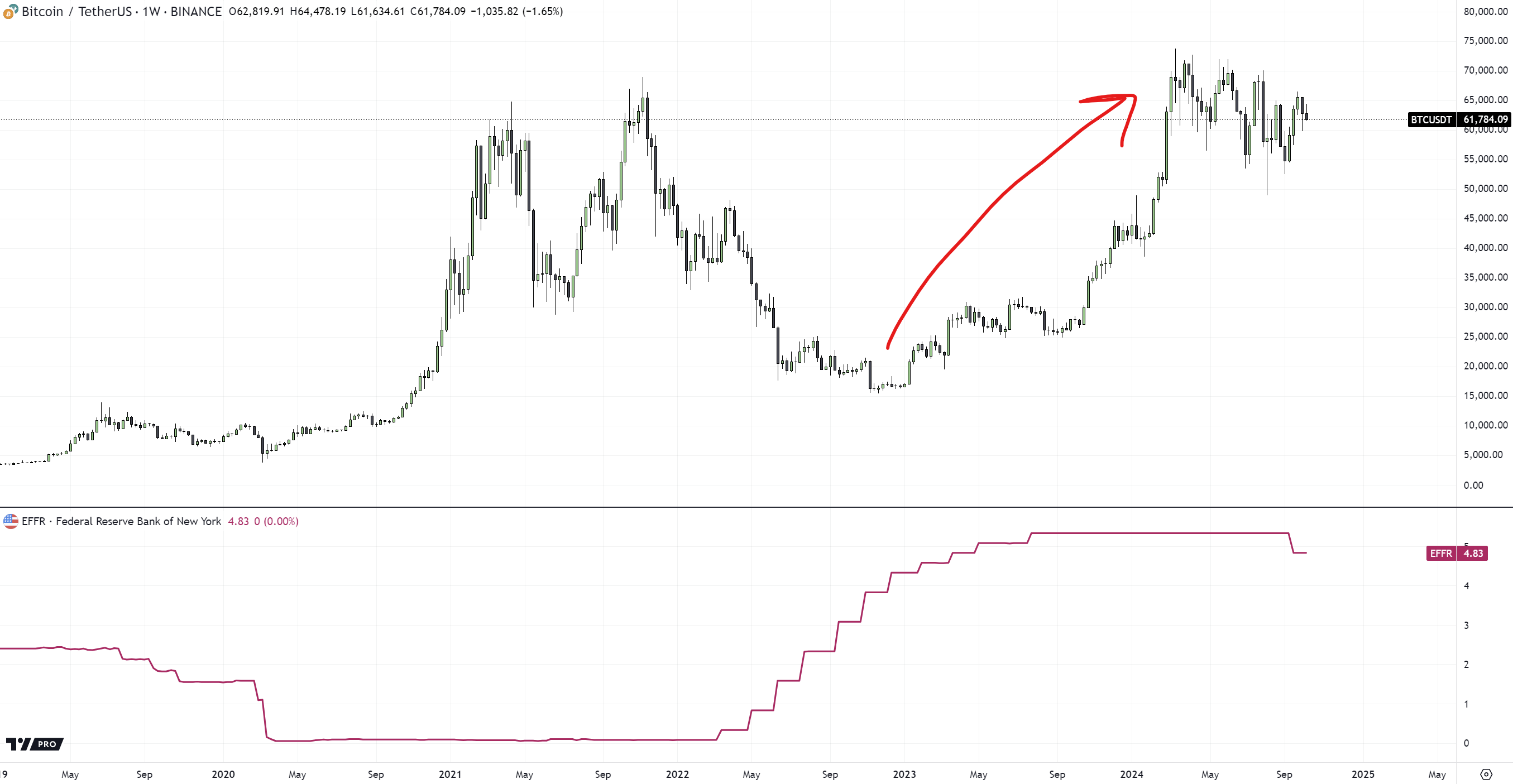The stagnation of the Bitcoin price despite the first rate cut by the US Federal Reserve since 2020 has perplexed many investors and traders within the market. In a new post on X, Andrew Kang, CEO of Mechanism Capital addressed the disproportionate emphasis that market participants have placed on Federal Reserve rate cuts and economic stimulus in China.
Why Is Bitcoin Stagnating?
Kang challenges the prevalent market belief that interest rate cuts by the Federal Reserve will significantly boost Bitcoin and crypto prices. “Fed rates are only one of the factors that impact global liquidity, and global liquidity itself is only one of the factors that influence crypto prices,” he stated. Kang finds it “nonsensical to see BTC rally 4.5x during a period where rates were going to and at multi-decade highs—showing little correlation between rates and BTC—and then expect a strong inverse correlation to present itself as soon as rates start going down.”
Related Reading
He acknowledges that some argue future rate changes are already priced into the market but counters that this logic should apply equally to rate hikes and cuts. “This is not to say that rates are not important, but rather that they are well overweighted by most market participants,” Kang added. He notes that equities have a stronger tie to interest rates due to factors like discount rates used in valuing cash flows and mature corporate debt markets used to finance growth.
Addressing China’s recent economic stimulus, Kang observes that its impact on Bitcoin and crypto is even less significant than many believe. “It’s not surprising to see that the people extrapolating China stimulus as being extremely bullish for crypto are primarily non-Chinese,” he commented. According to Kang, those within China have noted a shift from crypto investments to A-shares in the stock market.
Supporting his claim with data, Kang pointed out, “Since Chinese stimulus was announced, USDT has traded to a discount to CNY. Still at 3% as of recent.” This suggests a decreased demand for the premier stablecoin Tether (USDT) in China, aligning with a move towards traditional equities.
Despite his critiques, Kang clarifies that he is not bearish on Bitcoin. “I just think that some people have gotten over their skis a…
Click Here to Read the Full Original Article at NewsBTC…
























